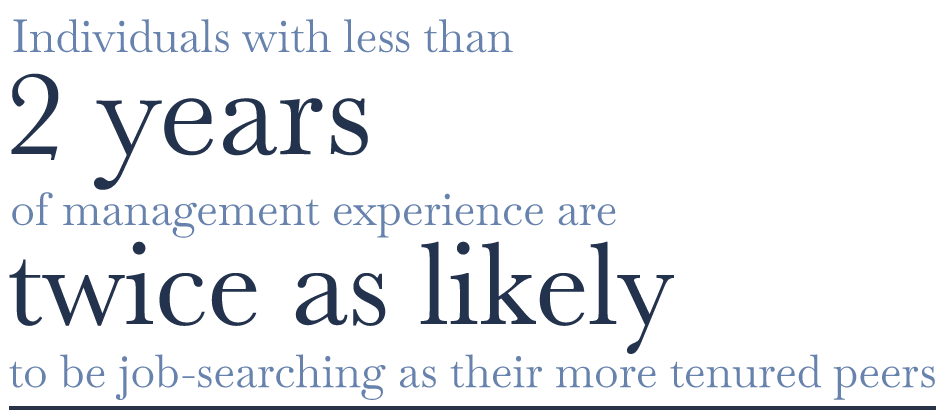Unfreezing Your People Managers
2 Min. Read
.jpg)
People managers today experience more pressure than ever before: recent Gartner research indicates that people managers report having more work today than prior to the pandemic, with the average manager having 51% more work than they can effectively take on. Similar research from Gallup suggests that managers are more likely than non-managers to be disengaged, burnt out, and job-seeking.
While the average manager may face more challenges than the average individual contributor, team members are not immune to the effects of their managers' struggles: according to Gartner, employees reporting to managers at risk of failure are 91% less likely to be high performers, and three times more likely to want to leave their organizations. Add to this dynamic the accelerating pace of change, and it becomes clear why so many managers are frozen in place, struggling to meet the expectations of senior leaders.
So, what can help to unfreeze them? Well, the first strategy is to make sure they've got the tools for the job: a 2023 Capterra survey found that only 37% of managers received training when promoted into role, and 74% say that they've received training rarely or never since then. Gallup data corroborates this finding, indicating that fewer than half of managers feel they have the skills they need to be exceptional at their jobs. This need is especially pressing for new managers with under two years of management experience, who are twice as likely to be job-searching than their more tenured peers.
And here we have a paradox: managers today need more development, but have less time for it. In this environment, manager development can only be effective when it helps managers to get laser-focused on the most critical goals. Too often, managerial training asks participants to boil the ocean, sharpening a plethora of skills without providing guidance on which skills are most relevant to business strategy. These programs leave participants with a set of tools that work well in the abstract, but that fall short of giving them the insight they need to focus on the most critical things, preserving their energy for the highest-value activities and mitigating burnout risk. Conversely, by ensuring that your management training is aligned with your strategic goals and keenly focused on the behaviors you most need from managers, you give them the insight to sharpen their judgment and help them understand how to be effective when they can't do everything at once.
Manager development requires a few other attributes to be impactful as well: it needs to be intensely pragmatic, focusing less on theory and more on tools and strategies that managers can immediately apply to their working lives. Otherwise, overworked managers will skip development in favor of tasks that feel more pressing. It also needs to give participants sufficient time and space to process how to apply the training to their working lives. Ideally, this sense-making happens in peer groups with similar challenges and diverse points of view. Along those same lines, effective manager development should give participants an opportunity to build their networks across functions and tap into perspectives that they can't easily get within their own immediate teams. Not only do such networks give managers more meaningful support, they also enrich their enterprise thinking and cross-functional collaboration.
Our People Manager Activation program was designed not only to address these pain points, but to transform managers into cultural role models who scale the right behaviors beyond themselves. Contact us to discuss how to un-freeze your frozen people and empower your managers to succeed.



